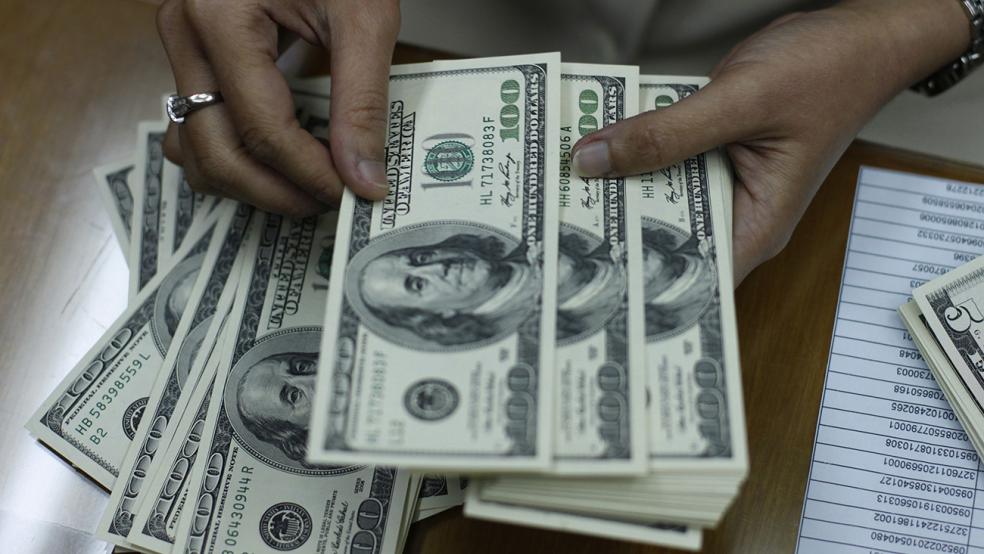If millennials are supposed to be the first generation going mostly cashless, they are making the move halfheartedly. Millennials still rely on cash — 80 percent of millennials carry greenbacks. And 42 percent still write checks, according to the Accel + Qualtrics Millennial Study 2017.
And that could be a good thing, as some advisors say a cash diet is the best way to pare down debt.
Related: Why Millennials Are the Worst Drivers in America
The study corroborates other recent findings that technology is not overturning conventional ways to pay for things, even as millennials flock to mobile payment apps like Apple Pay and Venmo.
The Federal Reserve Bank of Cleveland released a study late last year showing that there were more than 17 billion checks in circulation in the U.S in 2015 with a value of more than $26 trillion, and while continuing down from previous years, the rate of decline has slowed rather than accelerated.
Digging into the truth about millennials and cash can help this generation, saddled with student debt, save money.
Sophia Bera, a millennial who founded Gen Y Planning and is a member of the CNBC Digital Financial Advisor Council, said most of her friends carry some cash, but she rarely sees them using it as the first option to pay for things. It's mostly cash for emergency situations, or cash for tips.
"When I use Venmo it feels like magical money," Bera said. "You forget that it is money, like any money, and that is bad."
Related: Why So Many Unmarried Couples Are Buying Houses
The financial advisor highly recommends cash to people trying to get out of credit card debt or for sticking to a budget. "A weekly cash amount is good," Bera said. "Take out $200 every Friday and when it is gone it is gone. ... It's a lot harder to drop 6 twenties on a dress than swiping a card. People don't buy flatscreen TVs with $20 bills."
Bera said switching to cash, even for just a few months, can help people reign in spending, and is especially helpful for those trying to get out of debt.
It's a practice a millennial CNBC Make It reporter recently tried, with positive results.
"We have this image of millennials as freewheeling nomads who move around with only a smartphone and payment apps in their pockets. The reality is much different," said Mike Maughan, head of brand growth and global insights at Provo, Utah-based survey software firm Qualtrics, and himself a member of the millennial generation.
Maughan pointed to additional study data showing millennial consumer spending preferences related to technology are not occurring as quickly as commonly perceived. The Accel + Qualtrics Millennial Study found that while online shopping is a growing trend, millennials haven't given up on brick-and-mortar stores just yet. In fact, nearly half of millennials say they purchase electronics in stores and more than one-third say they still buy books in a bookstore.
"Millennials are the first always-connected generation, and it shows in more than just how they share their adventures online," Maughan said. They are three times more likely than older generations to turn to social media for advice about product purchases.
How millennials pay for things
80 percent use cash
64 percent carry cash most of the time
4x more millennials use cash than top mobile payment platforms
3x more millennials use checks than mobile payment platforms.
42 percent still use checks
More millennials use cash than debit cards
Millennials are 16x more likely to use Apple Pay or Android Pay than boomers ...
... And 6x more likely than boomers or GenX to use Venmo.
(Source: Qualtrics + Accel Millennial Study 2017)
Michael Diamond, general manager of payments at Mitek, which provides technology services including verification and bill pay to financial companies, and has 5,500 banks using its mobile deposits function, pointed to a Bain study from November in which it found millennials still calling call centers and walking into bank branches more than expected.
A suspected culprit?
"Millennials are very nervous about money," Diamond said. "They feel unsophisticated about how it works." They have embraced loyalty-based mobile payment options — and it is significant that there is now an expression 'Venmo me money,'" Diamond said.
This article originally appeared on CNBC. Read more from CNBC:
Trump's 'phenomenal' tax plan may have a hard time paying for itself
Steve Mnuchin is learning what it's like to be Janet Yellen
The richest Americans are still likely to reap the biggest benefits of Trump's tax reform



